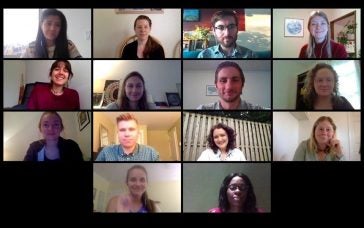
Things were moving right along schedule in March 2020. Metcalf Institute had just selected an extraordinary group of Fellows for its 22rd Annual Science Immersion Workshop for Journalists when the COVID-19 pandemic and social distancing mandates stopped the Workshop in its tracks.
The Metcalf team quickly considered options: should we cancel the long-standing, in-person science immersion model for this year or create an entirely new virtual experience? We decided on the latter and went to work designing the Institute’s first-ever web-based science workshop for journalists to be held over a two-week period, June 8-19th.
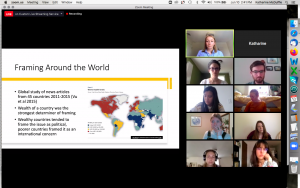 Despite the challenges of adapting to an online model, the shift offered the opportunity to engage a wider range of participants. We increased our 2020 fellowship class to fourteen journalists (over the typical ten-person limit), including six Fellows working abroad. Fellows hailed from a variety of large and small news organizations in the U.S. and Australia, the U.K., Colombia, Canada, Nigeria, and Brazil. Workshop speakers joined us from nine U.S. states in the online sessions, offering a wide range of global insights from their research.
Despite the challenges of adapting to an online model, the shift offered the opportunity to engage a wider range of participants. We increased our 2020 fellowship class to fourteen journalists (over the typical ten-person limit), including six Fellows working abroad. Fellows hailed from a variety of large and small news organizations in the U.S. and Australia, the U.K., Colombia, Canada, Nigeria, and Brazil. Workshop speakers joined us from nine U.S. states in the online sessions, offering a wide range of global insights from their research.
Anonymous exit surveys and informal correspondence with the 2020 Fellows indicate that the virtual workshop was a huge success.
“It was an amazing workshop that equips journalists with the right tools to tell science stories in a way that affects humanity,” said Josephine Okojie, agriculture, environment, and entrepreneurship reporter for BusinessDay in Lagos, Nigeria. “The information gained will help me effectively and efficiently interpret and explain scientific journals to readers.”
“It has been a terrific two weeks, and I’m really honored and grateful that I was selected to take part,” said Denise Chow, environment, climate change and science reporter at NBC News in New York. “I really appreciate all the work that the Metcalf team did to put together this virtual workshop,”
“I can’t imagine the work and probably anxiety that went into ‘virtualizing’ the workshop, but I woke up every day excited to learn more and hear from a new round of experts,” said Kyle Bagenstose, an investigative reporter for USA Today/Gannett in Philadelphia. “I have a better understanding of how to navigate scientific papers and relationships with scientists, and how to report on climate change.”
Whitney Bauck, senior sustainability reporter for Fashionista.com, told us, “this fellowship has been a highlight of my year.”
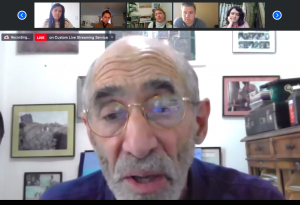
The workshop focused on the consequences of and solutions to climate change and the most effective ways to communicate these challenges. Sessions included Metcalf’s popular four-part science translation activity, in which Fellows gain skills to read and translate scientific publications, and discussions about scientific uncertainty and how to frame climate change topics effectively and inclusively in news coverage. Fellows also explored the state of scientific understanding related to how climate change affects extreme weather, ecosystem impacts; and sea level rise, as well as strategies for
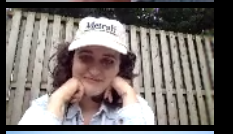
building climate resilience. A concluding reporters’ roundtable gave the Metcalf Fellows a chance to discuss underreported climate change stories with scientists and journalists.
In recognition of national outrage over racial inequalities and ongoing violence against Black people, we incorporated discussions of climate justice and systemic racism throughout the workshop.
The two weeks of intense learning was not “all work and no fun.” Fellows had an
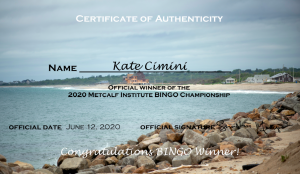
opportunity to network with other journalists during daily Metcalf meet-ups at the end of formal workshop activities and a virtual happy hour celebrating the end of the first week. They were also invited to browse the “digital swag shop” featuring cool Metcalf memorabilia, and compete in a Metcalf BINGO game.
